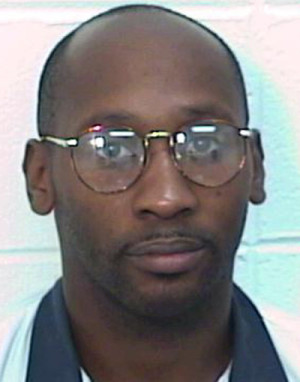Troy Davis (Troy Anthony Davis)

Troy Davis
An American man convicted of and executed for the August 19, 1989, murder of police officer Mark MacPhail in Savannah, Georgia. MacPhail was working as a security guard at a Burger King restaurant when he intervened to defend a man being assaulted in a nearby parking lot. During Davis’s 1991 trial, seven witnesses testified they had seen Davis shoot MacPhail, and two others testified Davis had confessed the murder to them. There were 34 witnesses who testified for the prosecution, and six others for the defense, including Davis. Although the murder weapon was not recovered, ballistic evidence presented at trial linked bullets recovered at or near the scene to those at another shooting in which Davis was also charged. He was convicted of murder and various lesser charges, including the earlier shooting, and was sentenced to death in August 1991. Davis maintained his innocence up to his execution. In the 20 years between his conviction and execution, Davis and his defenders secured support from the public, celebrities, and human rights groups. Amnesty International and other groups such as National Association for the Advancement of Colored People took up Davis’s cause. Prominent politicians and leaders, including former President Jimmy Carter, Rev. Al Sharpton, Pope Benedict XVI, Archbishop Desmond Tutu, former U.S. Congressman from Georgia and presidential candidate Bob Barr, and former FBI Director and judge William S. Sessions called upon the courts to grant Davis a new trial or evidentiary hearing. In July 2007, September 2008, and October 2008, execution dates were scheduled, but each execution was stayed shortly before it was to take place.
In 2009, the Supreme Court of the United States ordered the U.S. District Court for the Southern District of Georgia to consider whether new evidence “that could not have been obtained at the time of trial clearly establishes [Davis’s] innocence.” The evidentiary hearing was held in June 2010. The defense presented affidavits from seven of the nine trial witnesses whose original testimony had identified Davis as the murderer, but who it contended had changed or recanted their previous testimony. Some of these writings disavowed parts of prior testimony, or implicated Sylvester “Redd” Coles, who Davis contended was the actual triggerman. The state presented witnesses, including the police investigators and original prosecutors, who described a careful investigation of the crime, without any coercion. Davis did not call some of the witnesses who had supposedly recanted, despite their presence in the courthouse; accordingly their affidavits were given little weight by the judge. Evidence that Coles had confessed to the killing was excluded as hearsay because Coles was not subpoenaed by the defense to rebut it.
In an August 2010 decision, the conviction was upheld. The court described defense efforts to upset the conviction as “largely smoke and mirrors” and found that several of the proffered affidavits were not recantations at all. Subsequent appeals, including to the Supreme Court, were rejected, and a fourth execution date was set for September 21, 2011. Nearly one million people signed petitions urging the Georgia Board of Pardons and Paroles to grant clemency. The Board denied clemency and, on September 21, it refused to reconsider its decision. After a last minute appeal to the United States Supreme Court was denied, the sentence was carried out through lethal injection on September 21, 2011.
Born
- October, 09, 1968
- Butts County, Georgia
Died
- September, 21, 2011
- Jackson, Georgia
Cause of Death
- execution by lethal injection

